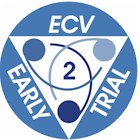
What are the benefits to taking part in the study?
|
|
What are the benefits to taking part in the study?
|
|
The Early ECV 2 Trial will be large enough to be certain of any differences, and we hope that the information learned will benefit women like you with breech pregnancies in the future. |
|
What are the risks associated with participation in the study? |
|
|
In the Early ECV Pilot Trial, there were no differences in rates of complications for mothers or babies, including pre-term birth when ECV was done at 34-35 weeks compared to 37-38 weeks in the pregnancy. However, that study, which included 233 women, was too small to be certain that no differences existed. Because the complications of pregnancy that may be encountered following ECV are also complications that can occur on their own in pregnancy, even if no ECV is done, it is difficult to link complications with ECV. It is possible that a complication could occur following an ECV procedure resulting in problems for the baby, and even death, but ECV is believed to be a safe procedure. In a paper, which combined the findings from several studies in order to compare ECV with no ECV at full term (with a total of 1066 mothers having ECV and 932 who were eligible for but did not have ECV), it was found that within 24 hours of the ECV procedure, 0.28% (<3/1000) babies needed to be delivered by Caesarean section following the ECV procedure, and 0.75% (<8/1000) went into labour spontaneously. Another summary of studies on ECV (which included 7377 women) established that complications associated with ECV were very rare and estimated that the risk of placenta coming away from the uterus was 0.12% (<2/1000) and of the baby dying was 0.16% (<2/1000). |
|
|
In the Early ECV2 study, if a complication is encountered that results in delivery of your baby, and you are in the early ECV group it might mean that your baby would be born somewhat prematurely. However, you should be reassured that babies born after 34 weeks of pregnancy usually do very well. If a baby is born prematurely between 34 and 36 weeks of pregnancy, it will occasionally need intensive care and possibly assistance with breathing. The likelihood of a baby dying from complications of prematurity after 34 weeks of pregnancy is less than 0.3% (3/1000).
|
|
For more information about the safety of ECV follow this link - Acta Obstetrica Journal. |
 |

|
 |